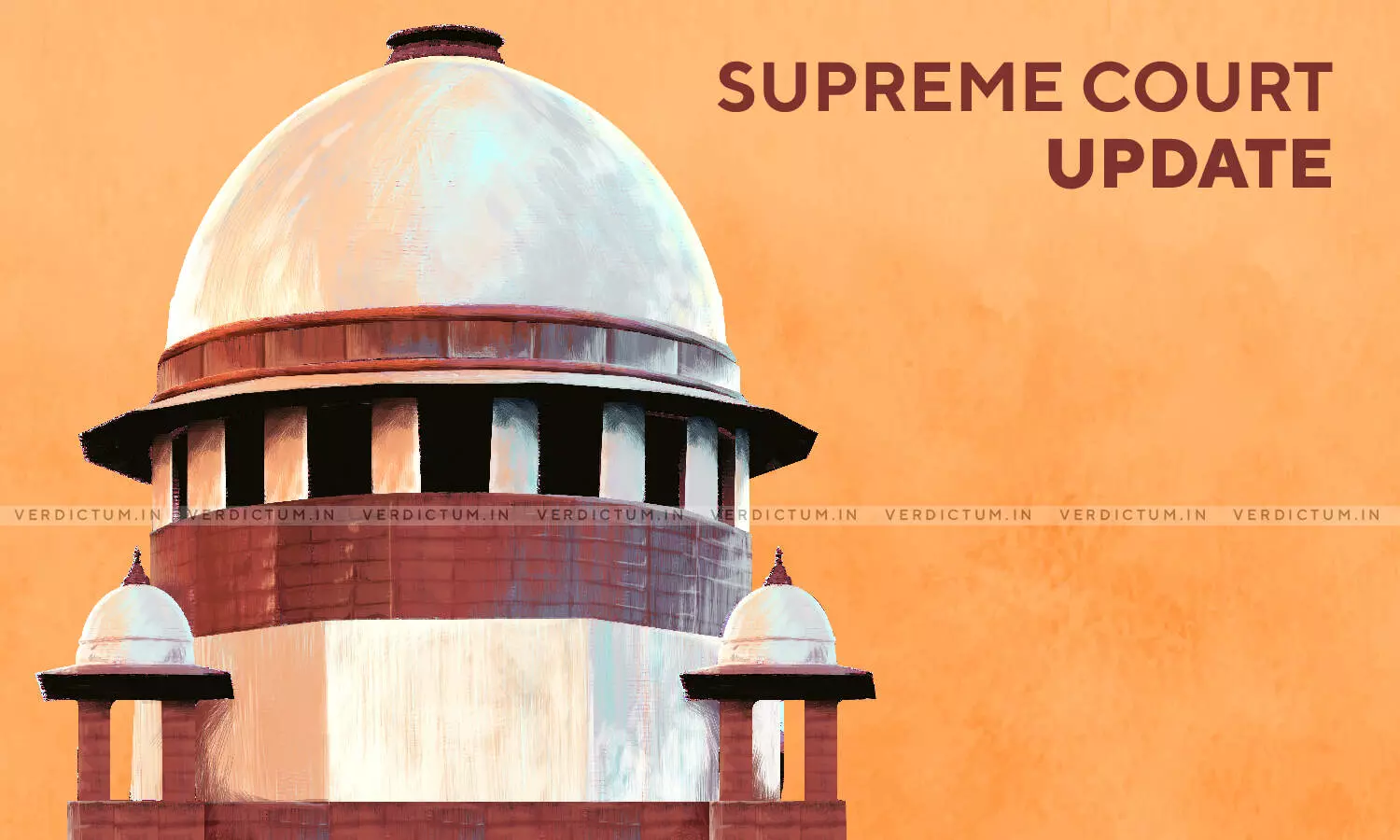
In The Absence Of Rules Governing Service Conditions Of Employees, Employer Can Issue Executive Orders: Supreme Court
 |
|A two-judge Bench of Justice UU Lalit and Justice Bela M Trivedi has held that it is a well-settled proposition of law that in the absence of any rules or regulations governing the service conditions of employees, the State Electricity Board has the power to issue administrative orders.
Advocate Ms. Uttara Babbar appeared for the Appellant-PSEB, while Senior Advocate Mr. Vikas Mahajan appeared for the Respondents during the proceedings before the Court.
An appeal was preferred by the Punjab State Power Corporation Limited (PSEB) assailing the judgment of the Division Bench of the Punjab and Haryana High Court which had dismissed the appeal of the Appellant and upheld the decision of the Single Bench. The Single Bench had allowed the Writ Petition of the Respondent-Original Writ Petitioners.
The Single Bench had held that the Office Order dated 29.03.1990 issued by the Appellant through which 20% posts of Junior Engineer II (Civil) was not notified in the Official Gazette as required under Section 79 of the Electricity (Supply) Act, 1948 and therefore could not be enforced.
In this case, the Appellant in order to settle the issue of stagnation in various cadre of regular employees had issued office orders through which a scheme was introduced to allow a time-bound benefit of the higher pay scale on the completion of 9 and 16 years of service. One such office order was issued on 29.3.1990 through which 20% of the cadre posts of Junior Engineer II in the) were upgraded to that of Junior Engineer-I (Civil).
Further, PSEB granted Respondents who were working as Civil Engineers (Civil) a pay scale after 9 years and 16 years respectively.
Being aggrieved the Respondent had filed a Writ Petition before the High Court and sought directions against PSEB to grant a higher pay scale after the completion of both 6 years and 9 years contending that they were entitled to the benefits.
The Appellant contended before the Supreme Court that the office order was issued to resolve the problem of stagnation in the cadre of junior engineers and not for promotion purposes; hence Section 79(c) of the Electricity Act was not applicable.
While relying on certain precedents, Ms. Babbar argued that as per the settled legal position, in absence of any regulations, issuance of Executive Orders was permissible in law.
Further, the Appellant made a reference to the precedent Bhakra Beas Management Board vs. Krishan Kumar Vij and Anr where it was held that the office order was issued only to remove stagnation and it would not give the employee a right to higher pay scale even if he did not fulfill prerequisite qualifications for holding the higher post.
The Respondent argued before the Court that PSEC could not have amended or superseded the statutory Regulations by issuing administrative instructions.
Further Mr. Mahajan pleaded that issuance of such office order was changing the conditions of service of the Respondents and therefore the same was required to be published in the gazette under Section 79 of the Act.
The issue which was dealt with by the Apex Court was whether the said office order was required to be published in the Official Gazette as contemplated in Section 79 of the said Act?
The Supreme Court noted that there was a vast difference between the upgradation and promotion.
"Ordinarily upgradation of a post would involve transfer of a post from lower to higher grade and placement of an incumbent of that post in the higher grade. Such placement would not involve any selection process to be followed, but would merely confer a financial benefit by raising the scale of pay of the post," the Bench observed.
Further, the Court opined, "However, in case of promotion, there would be an advancement to a higher position or rank along with an advancement to a higher grade. Therefore, the word "promotion" would mean advancement or preferment in honour, dignity, rank and grade."
The Court additionally held that the office order which was issued was only for the purpose of upgradation that merely conferred a financial benefit by raising the pay scale of the Respondents, without there being advancement to the higher post and without there being any changes in the duties and responsibilities.
"It could not be said by any stretch of imagination that the PSEB had robbed the respondents of their legitimate right of promotion by issuing the said office order or that such order could not have been issued without corresponding amendment in the Regulations, as held by the High Court," the Court asserted.
The Bench relied upon the precedent Sohan Singh Sodhi vs. Punjab State Electricity Board, Patiala, where it was held in the context of Section 79(c) of the Electricity (Supply) Act, 1948 that when the State Electricity Board can frame Regulations under Section 79(c) of the said Act, in absence of any Regulation, issuance of the executive order is permissible in law.
Furthermore, the Court held that there was no need for the Appellant to notify in the official gazette the office order which pertained to the upgradation of 20% of the posts of Junior Engineer.
In the light of these observations, the Court allowed the appeal and set aside the impugned judgment of the High Court.
Click here to read/download the Judgment